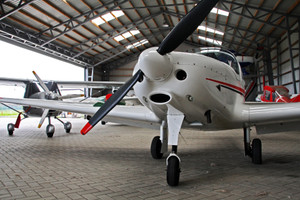Your Body on Jet Lag and How to Fight It
By on Jan 23rd 2017
There's nothing worse than coming back from a vacation-a relaxing one-and feeling absolutely exhausted.
I'm talking jet lag, my friends.
This is something I've experienced just flying three hours out of my normal time zone. So, how can we fight this beast?
First, we must understand it.
Jet Lag in Action
Jet lag is usually self-diagnosed and is officially defined as "a condition that is characterized by various psychological and physiological effects (such as fatigue and irritability), occurs following a long flight through several time zones, and probably results from disruption of circadian rhythms in the human body (Merriam-Webster)."

The medical name for jet lag is "desynchronosis," and it occurs during lateral travel. It happens when our natural, internal clocks (our circadian rhythm), become thrown off by a visual difference in daylight (if you left on an early morning flight and you've been awake for, say 10 hours, then you land somewhere and it is only just lunch time- well, it throws you off a bit, to say the least).
Symptoms include irritability (I'm speaking from experience here-), poor sleep patterns, trouble concentrating, and even headaches. Of course, this varies from person-to-person and trip-to-trip.
Fun Fact: Why jet lag? Because this really only occurs on jets. Propeller planes are not fast enough-and they don't carry enough fuel-to travel long distances quickly enough to throw off our internal clocks.
Fighting Back: The Cure?
There are a few different ways to fight jet lag. One traditional method is to take sleeping medications during your flight, but you want to be careful here. While they can help you fall asleep, sleeping medications won't have any effect on your natural adjustment to new sleeping patterns.

Instead, use earplugs and a sleeping mask to naturally fall asleep. Also, be sure to keep hydrated during a flight and avoid drinking anything caffeinated.
Once you land, immerse yourself in outdoor activities if it's daytime. Being in the sun will help a great deal with naturally adjusting your body to the new time zone. You might also want to sneak in a nap or two if you're having a hard time staying awake.
Alternatively, you might want to adjust your sleeping schedule before you even leave for your trip. Stay up later or go to bed a little earlier. The goal is to gradually get used to the time when you will be sleeping when you arrive at your destination.
Finally, here's one I never thought of before: wear sunglasses. If you're leaving for a trip where the sun sets earlier than at home, don some shades a few days before you leave (earlier than your regular sleep time) and trick your brain into thinking it's getting dark. You'll fall asleep sooner and adjust to the local time zone quicker when you land.
Looking for more? Check out our post
A Brief Study of Jet Lag and 5 Things That Happen to Your Body During a Flight.
Do you have any jet lag remedies you swear by? Please share and save us all from future frustration and pain!
Sources:
https://www.merriam-webster.com/dictionary/jet%20lag
https://en.wikipedia.org/wiki/Jet_lag
http://www.huffingtonpost.com/2014/07/15/jet-lag-tips_n_5577679.html







